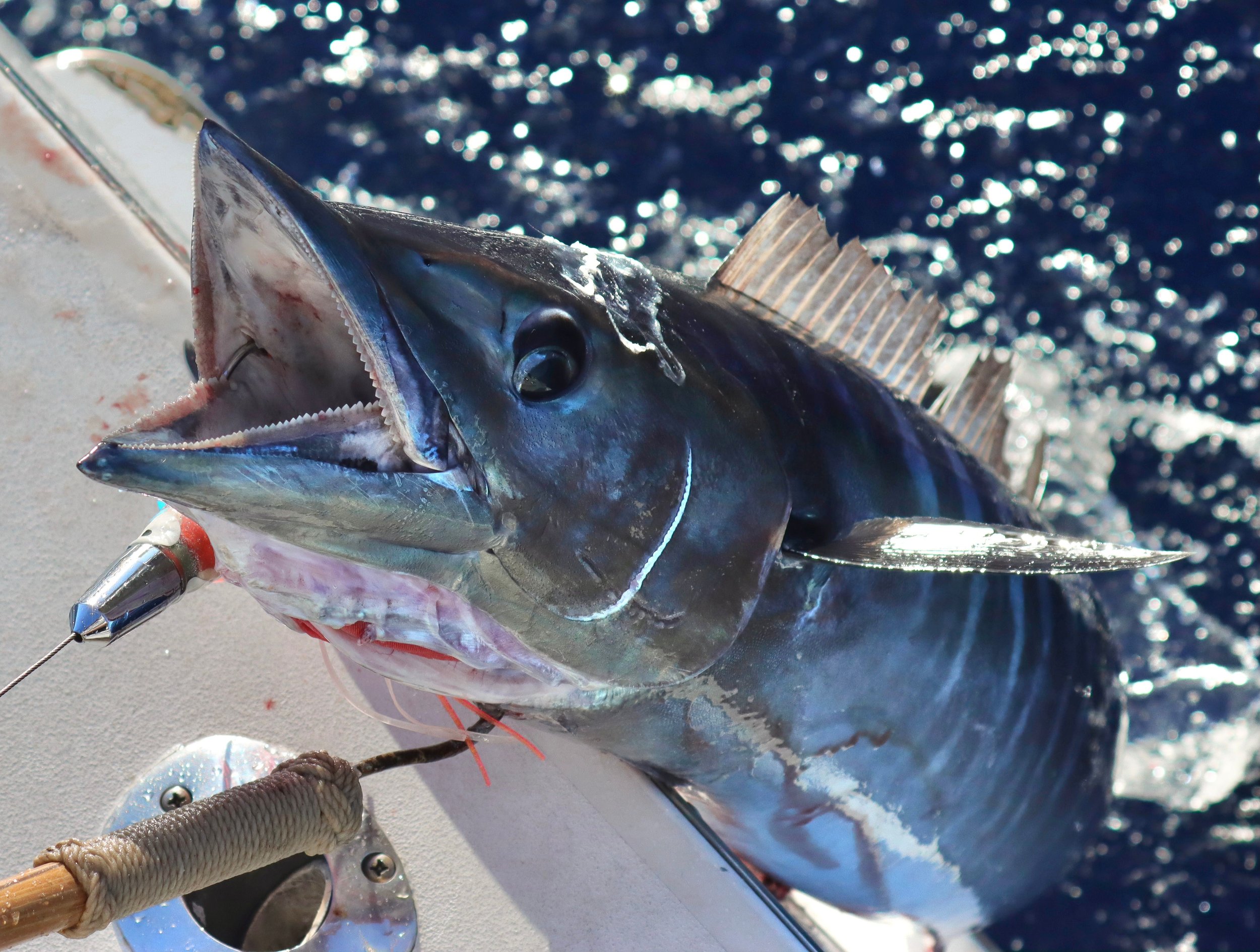Sportfishing, Snorkeling, Manta Rays and Whale Watching. Find the best deals for some of Kailua-Kona’s top Charter Vessels.
Featured Fish Ono (Wahoo)
Featured Merchandise ALOHA Manta Ray
Frequently Asked Questions about Fishing in Kailua-Kona
How much does a charter cost in Kailua-Kona?
Charter prices vary by company, but therein lies the perfect price for your needs. Check out our CHARTERS page for more information on pricing for certain companies.
What kind of fish can we catch in Kailua-Kona Hawaii?
Many species of fish are targeted in Kona, from the famous Pacific Blue Marlin to the fish so nice, they named it twice. Mahimahi (Dorado, Dolphin). If you’d like to see a list of all targeted species in Kailua-Kona Hawaii click HERE to view out Species Profiles.
Can I take my family fishing?
The answer to that question solely relies on whether or not YOU want to take your family! But in all seriousness, of course you may! Here are some recommendations for charters that are family friendly! MAUNA LOA SPORTFISHING for Private Charters; If you want to just take a few and can’t afford the whole boat, you can check out BITE ME SPORTFISHING for a more affordable share charter.
Is the fishing gear included?
Most Fishing Charters in Kailua-Kona provide all the necessary fishing tackle to reel in the fish of your dreams. So no need to worry about bringing anything else, but yourself!




